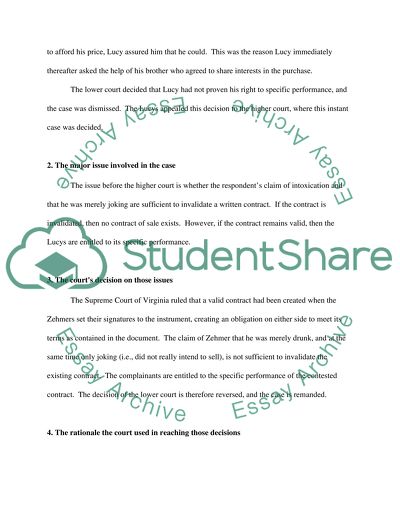Cite this document
(“Lucy vs. Zehmer Essay Example | Topics and Well Written Essays - 1250 words”, n.d.)
Lucy vs. Zehmer Essay Example | Topics and Well Written Essays - 1250 words. Retrieved from https://studentshare.org/law/1432244-lucy-vs-zehmer
Lucy vs. Zehmer Essay Example | Topics and Well Written Essays - 1250 words. Retrieved from https://studentshare.org/law/1432244-lucy-vs-zehmer
(Lucy Vs. Zehmer Essay Example | Topics and Well Written Essays - 1250 Words)
Lucy Vs. Zehmer Essay Example | Topics and Well Written Essays - 1250 Words. https://studentshare.org/law/1432244-lucy-vs-zehmer.
Lucy Vs. Zehmer Essay Example | Topics and Well Written Essays - 1250 Words. https://studentshare.org/law/1432244-lucy-vs-zehmer.
“Lucy Vs. Zehmer Essay Example | Topics and Well Written Essays - 1250 Words”, n.d. https://studentshare.org/law/1432244-lucy-vs-zehmer.


